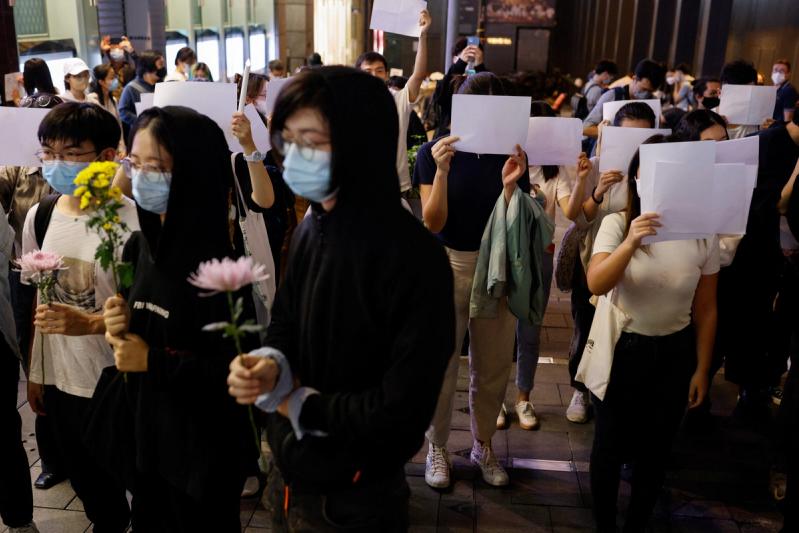The Author
Ellery Roberts Biddle writes Coda Story’s Authoritarian Tech newsletter.
In this article:
The micro-column

It feels as if the world can see and hear the voices of regular people in China in a way that seemed impossible just a few weeks ago. Reports of new demonstrations happening in different city plazas and university campuses across the country seemed for a period to surface by the hour.
China operates the world’s most powerful and sophisticated digital censorship apparatus. And indeed, the news is awash with stories of protest messages and media being censored across the Chinese internet, alongside reports of pro-China trolls flooding protest hashtags on Twitter with pornography and ads for escort services.
But if the censorship regime were truly all-powerful, we wouldn’t even know this much. I’ve spent nearly a decade editing and organizing coverage of protest movements in the social media era, and never imagined I could open my browser to find people in China and Iran defying these controls and beaming their solidarity across borders.
My former colleague Mahsa Alimardani, a seasoned expert on internet controls in Iran, re-shared a video from Shanghai, in which people shouted: “We don’t want a dictatorship, we want a democracy. We don’t want a leader, we want to vote. We stand with the people of Xinjiang! We stand with the women of Iran!”
So long as you’re connected, it remains possible to transmit — and receive — information, no matter what your government does.

